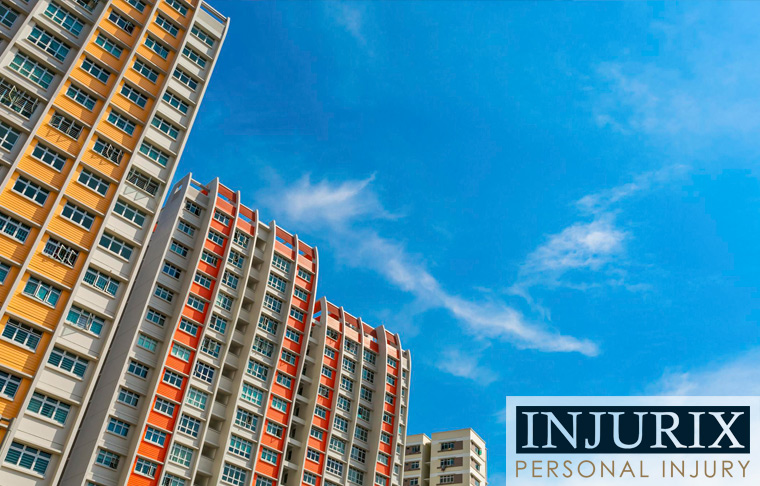
That leaky gutter formed a puddle on the driveway and caused you to slip and fall. Or maybe the snow didn’t get shoveled in a timely fashion and you took a spill on the sidewalk out front of the duplex you rent.
Now you’re wondering:
“Can I sue my landlord?”
The short answer is yes, but the longer answer is that it depends on a wide range of factors.
Negligence must be proven in a slip and fall case
There are five components to proving negligence in a slip and fall incident:
- The landlord must have a legal duty to exercise reasonable care
- The landlord must have failed to exercise reasonable care
- Your slip and fall must result in actual injuries
- Those injuries must accrue actual damages to you
- It must be established that the exercise of reasonable care could have prevented these injuries and damages.
Personal injury lawyers use the phrase “fact-intensive” to describe these cases. That means context matters. Let’s revisit our leaky gutter example from above. Did the landlord know about the leak? Could a reasonable person have been expected to know about the leak? If you have documentation asking that the leak be fixed, your case is stronger.
Your own role in the accident will be examined. Did you take reasonable care to avoid the puddle? Juries are unlikely to be sympathetic if you weren’t looking where you going, were impaired from drinking or any other factors that would add to your own responsibility. Even if the landlord was negligent, juries tend to be much more skeptical about the claims of the careless.
If you want a reasonable chance to win a slip and fall lawsuit against your landlord, transparency is your ally. It’s best to have clear communication on file with the landlord about the source of the problem. You should seek medical attention immediately after the injury. You need as many facts as possible on your side of the scales of justice.
The ability to prove fault is of the utmost importance in any slip and fall case.